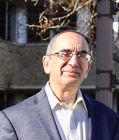Electoral participation is a cornerstone of representative democracy. The vote allows all citizens to participate freely and fairly in the political process and ensures that elected officials stay accountable to their constituents. Government becomes more trusted and effective when citizens participate. But when citizens do not vote, their opinions and interests may go unrepresented. Voting is especially important for disadvantaged groups, such as low-income citizens, racial minorities, and those with disabilities, who have little capacity to influence government by hiring lobbyists or donating to campaigns. Unfortunately, however, Oklahoma is experiencing an ongoing breakdown of electoral participation.
- In the 2014 midterm elections, less than 30 percent of eligible voters made it to the polls to cast a ballot for governor and other offices, the lowest turnout in at least fifty years.
- Winners of nearly two-thirds of seats in the state House of Representatives were decided without voters casting ballots in the general election.
- In the fall 2014 primary runoff elections (conducted when no candidate won a majority in the initial primary) average turnout was 18 percent; and in two statewide Democratic runoff contests barely one in ten registered party members cast a ballot.
- Only 52.4% of Oklahoma voters participated in the 2012 presidential election, the third worst turnout in the nation. Only two-thirds of voting-age citizens in Oklahoma were even registered to vote, the nation’s eighth lowest registration rate.
Many states are seeing deficits in voter participation, but Oklahoma’s election performance is especially troubling. In a study by the Pew Charitable Trusts that looked at issues such as voter registration, turnout, voting wait times, and problems with absentee ballots, Oklahoma ranked in the bottom third of states on most indicators.
It hasn’t always been this bad. As late as 2004, Oklahoma registration and turnout rates remained at or just above the national average. But over the last several election cycles, Republican dominance and collapse of the Democratic Party have reduced the number of competitive electoral contests and dampened voter interest – as have gerrymandered districts that protect incumbents from competition and rising campaign costs that dissuade challengers from running. National parties have also refocused party-building and get-out-the-vote efforts on swing states.
Election Reforms Could Boost Voter Participation
Many lament Oklahoma’s declining electoral participation, but respond simply by exhorting friends, neighbors, and colleagues to be better citizens. But electoral rules and practices also matter, and there are simple steps lawmakers could take to repair our broken democracy:
- Voter Information Pamphlets. In at least 16 states, state law requires that election officials publish and distribute pamphlets that inform voters with information on state questions, sample ballots, absentee ballot information, candidate information and more.
- Online Voter Registration. At least 13 states allow voters to complete a voter registration application entirely online. Online registration saves money, increases the accuracy of voter lists, is easier for voters, and reduces the chances of Election Day mix-ups.
- Expanded Voting by Mail. Colorado, Oregon and Washington now conduct all elections entirely by mail, while almost 20 other states allow at least some all-mail elections. Mail-in elections are inexpensive and administratively simple to operate, and they avoid such problems as voters not being able to get to the polls or not knowing where to vote. In an alternative approach, seven states allow voters to opt for “permanent absentee status” and automatically receive a ballot by mail in each election cycle.
- Easier Access to the Ballot. Oklahoma has the nation’s most restrictive ballot access laws, discouraging initiative petitions and making it hard for new parties or candidates or to get on the ballot – and thus giving voters fewer choices if they do not identify with the major parties.
- Open Primaries. Most states have some form of open primaries, but in Oklahoma all primary elections are restricted to registered party voters, which leaves the growing number of political independents with no voice in selecting candidate to appear on the general election ballot.
- Instant Run-Off Primaries. Oklahoma’s current primary run-off system has been shown to depress voter turnout. An alternative is the instant run-off, or preferential ballot, where voters rank candidates in order of preference and the votes of losing candidates are transferred to second- and third-choices until one candidate gains a majority. The instant run-off allows voters to more fully express preferences and encourages candidates to address more voters.
- Multi-Member Districts. In single-member plurality systems, legislative representation tends to be restricted to candidates and parties that appeal to a broad section of the population, while excluding or limiting representation for viewpoints held by significant segments of voters short of a majority. An alternative system combines multi-member districts with a single-transferable vote. Known as “choice voting,” this system increases the odds of minority parties or independent and third-party candidates winning at least some seats. With more competitive elections and viable candidates, more Oklahoma citizens would probably want to vote.
Time to Tackle the Problem
Together, election rule changes such as these have the potential to create a better informed and more highly engaged Oklahoma electorate. Enacting even a few of these changes could boost voter participation in elections to come.
But more important than any single reform is recognition by policymakers and opinion leaders that declining voter participation is a serious problem that must be addressed. Unless Oklahoma can find a way to get more citizens engaged in the political process, we will have little chance of solving the great substantive challenges we face as a state.
Read more in David Blatt, “Repairing Oklahoma’s Broken Democracy,” Oklahoma Policy Institute, December 2014.
